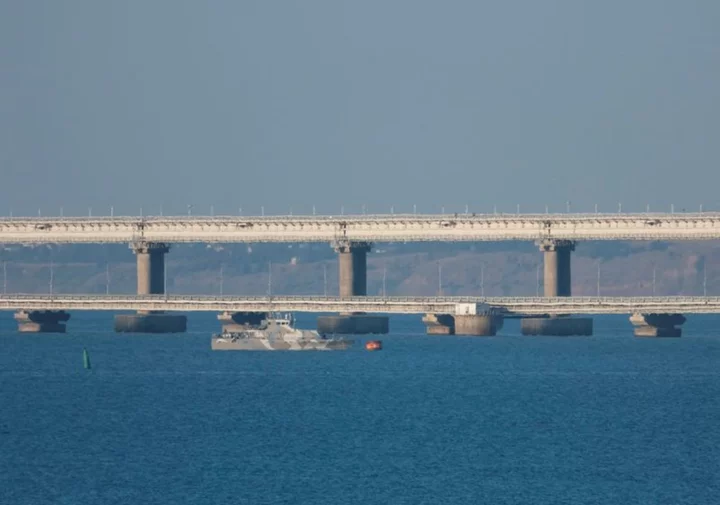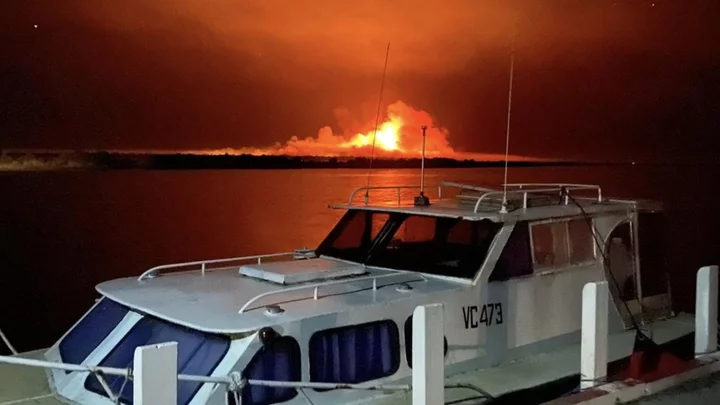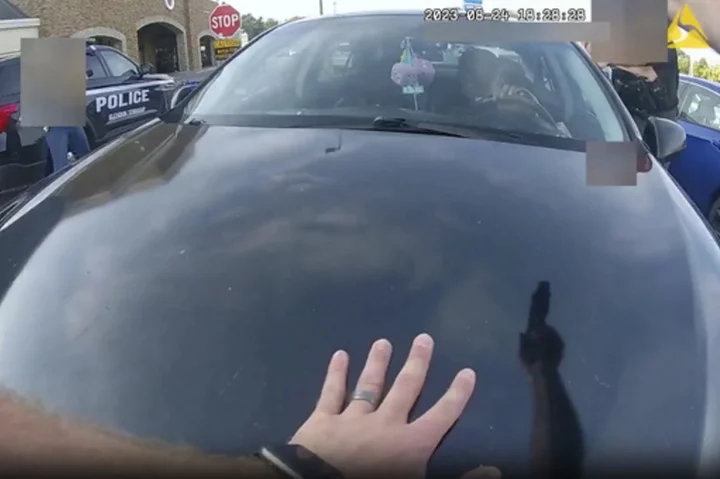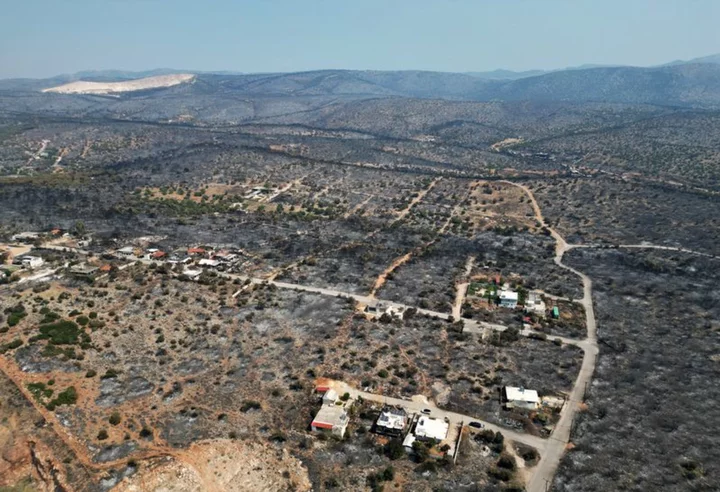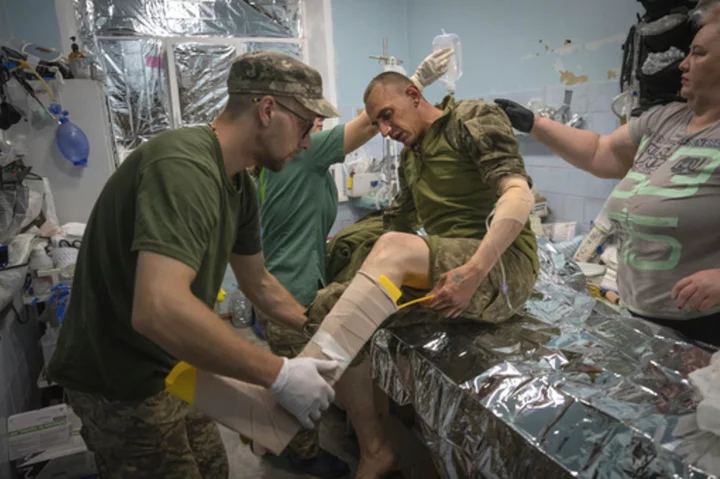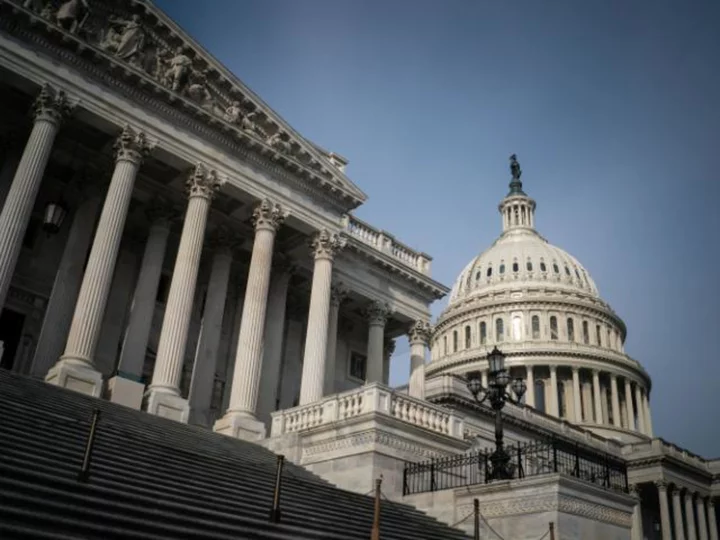KERCH, Crimea (Reuters) -Two people were killed and their daughter was seriously injured on Monday after blasts on the Crimean Bridge, a major supply artery for Russian troops fighting in Ukraine and a prestige project that was personally opened by President Vladimir Putin.
Reuters images from the scene showed no traffic crossing the 19 km (12-mile) road and rail bridge which links Russia to Crimea, which Russia annexed from Ukraine in 2014.
Unverified imagery showed twisted metal barriers, debris and a damaged car on the bridge. Dash cam footage showed drivers braking sharply shortly after the incident. The extent of the damage was not immediately clear.
Russian officials called it an "emergency" situation. Russia's Grey Zone channel, a Telegram channel affiliated with the Wagner mercenary group, reported there were two strikes on the bridge at 03:04 a.m. (0004 GMT) and 03:20 a.m.
The parents of a girl were killed and their daughter was injured in a passenger car.
"The girl was injured," Vyacheslav Gladkov, governor of the Belgorod region said in a message on the Telegram messaging app. "The hardest thing is that her parents died, dad and mum."
"No words can calm the pain of loss here," he said. The girl was being treated in intensive care.
Sergei Aksyonov, a Russia-installed governor, said the emergency occurred on the 145th pillar of the bridge. He did not provide any further details.
A spokesperson for Ukraine's southern military command, Natalia Humeniuk, said the incident on the Crimea Bridge could be an act of provocation on Moscow's side.
"The creation of such provocations, which the occupying authorities of Crimea report immediately very loudly, is a typical way of solving problems by authorities of Crimea and the aggressor country," Humeniuk told the national broadcaster Rada.
Russia blamed Ukraine for an attack on the bridge last October. Ukraine admitted only indirectly to the attack months later.
Serhiy Bratchuk, spokesperson for Ukraine's Odesa military administration, posted a photo on his Telegram account of what seemed to show part of the bridge broken. It was not immediately clear whether that was related to any attack.
After the October attack, Putin ordered the bridge repaired and even drove a Mercedes across it.
Russia's transport ministry said there was damage to the road on the bridge closer to the Crimean Peninsula, but there was no damage to the pillars. It did not say what caused the damage.
UKRAINE WAR
George Barros, an analyst at the Washington-based Institute for the Study of War, said if the bridge was seriously damaged it would significantly impact Russian supply lines.
"Russia will only have one ground supply line - the coastal highway on the Sea of Azov - to sustain (or evacuate) its tens of thousands of troops in occupied Kherson & Crimea if UKR manages to degrade/destroy the bridge," Barros said on Twitter.
It was not immediately clear what the incident on the bridge would mean for the U.N.-brokered deal that allows the safe Black Sea export of Ukrainian grain. Ukraine and Russia are among the world's top grain exporters.
The U.N. deal is due to expire on Monday, with the last ship to travel under the deal leaving the port of Odesa early on Sunday, according to a Reuters witness and MarineTraffic.com.
PUTIN'S SHOWCASE
The bridge, Europe's longest, was built by a company controlled by Putin ally Arkady Rotenberg. Putin has long lauded the project, boasting at one point that Russian Tsars and Soviet leaders had dreamed of building it but never did.
The Crimean peninsula has been a cherished vacation destination for Russians, especially after Moscow launched its invasion on Ukraine in 2022 and travelling to the West became much more difficult for Russians.
In recent weeks, traffic jams to the entrance of the bridge went for kilometres on daily basis as Russians went on holidays.
On Monday morning the traffic jam ran for kilometres before police directed vehicles away from the bridge. Social media accounts showed cars lined up on the bridge and its entrance.
The Russian-backed administration of the Crimean peninsula urged residents not to travel via the bridge.
(Reporting by Lidia Kelly in Melbourne and Guy Faulconbridge in Moscow; Editing by Kim Coghill, Michael Perry and Lincoln Feast.)

